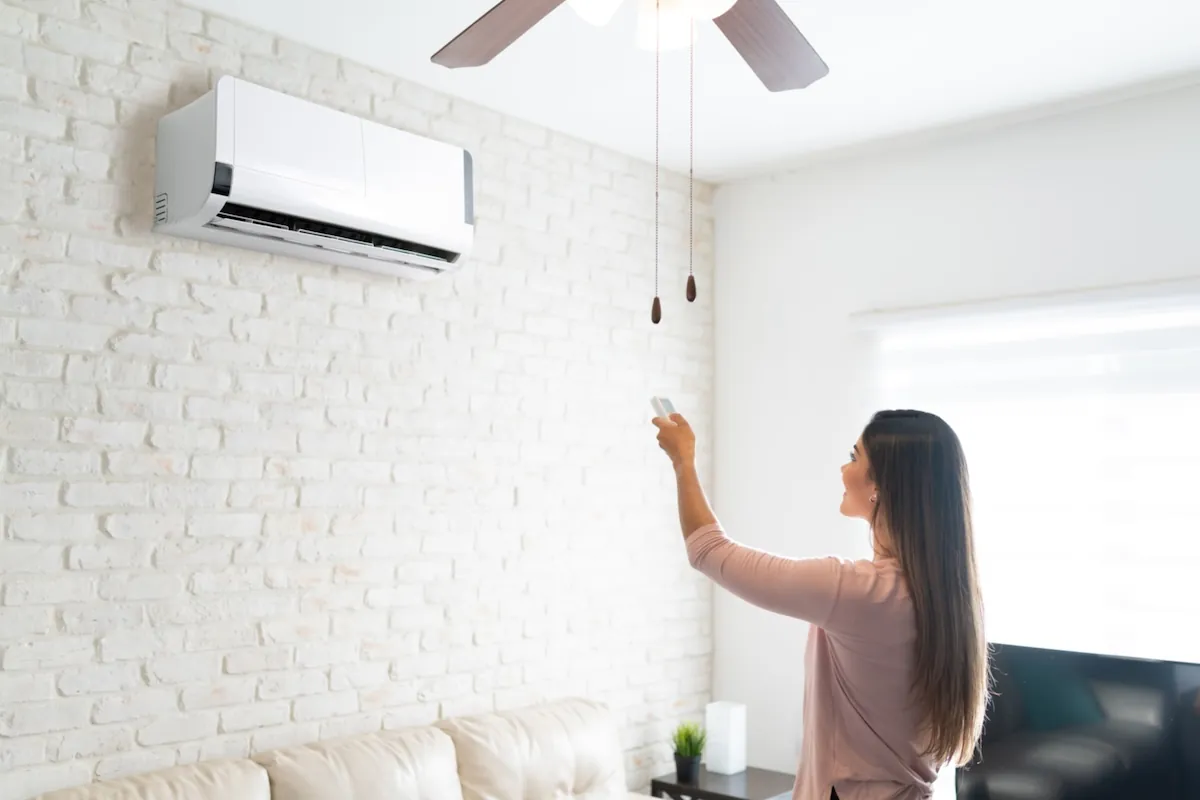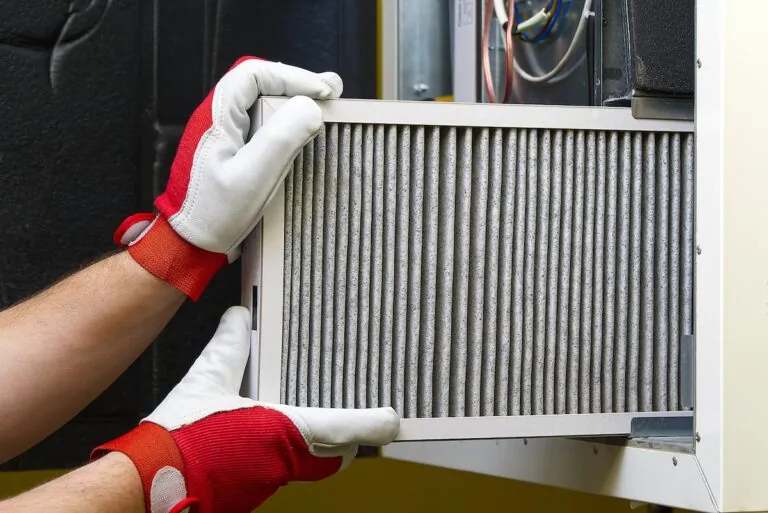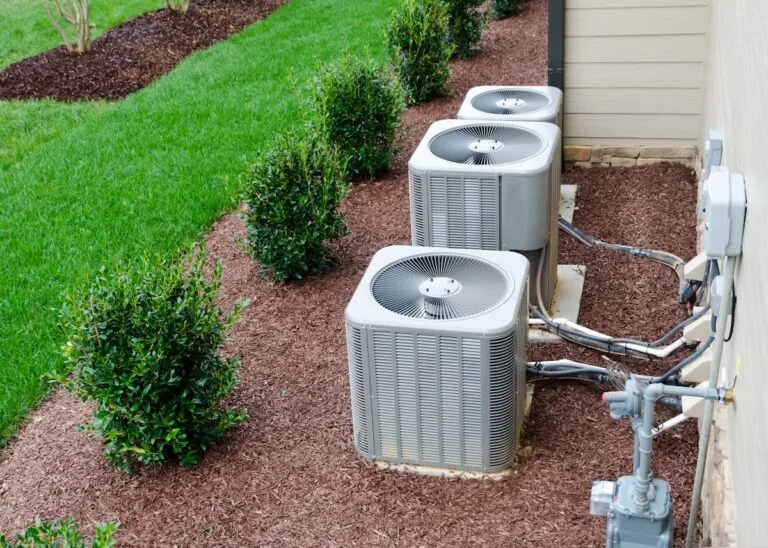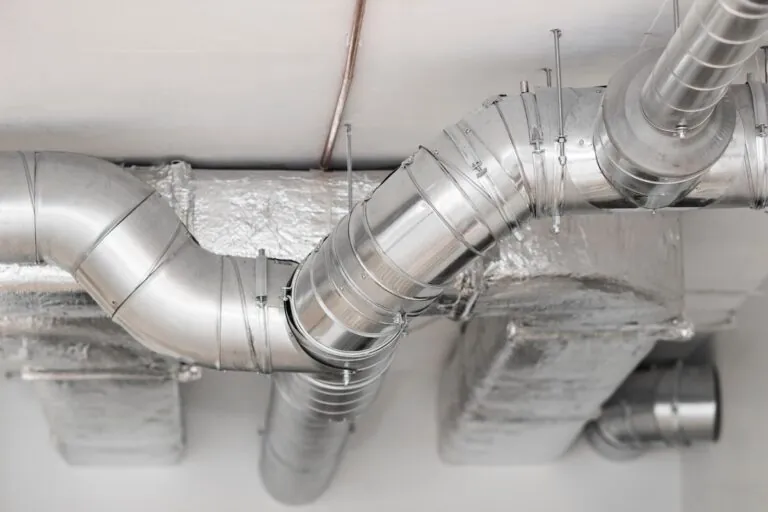An HVAC zoning system is a smart way to gain more control over your home’s temperature by dividing it into separate areas or “zones,” each with its own thermostat. Instead of heating or cooling your entire house to the same temperature, zoning lets you adjust comfort levels by floor, room, or even usage patterns.
Whether you’re dealing with hot upstairs bedrooms, drafty basements, or just tired of thermostat wars, a zoning system can help you take back control and make your HVAC system work more efficiently.
- Zoning systems allow different areas of your home to be controlled separately for personalized comfort.
- These systems improve energy efficiency and can help lower your utility bills.
- HVAC zoning is ideal for homes with multiple levels, large square footage, or inconsistent temperatures.
🤔 How an HVAC Zoning System Works
At its core, an HVAC zoning system uses motorized dampers inside your ductwork to control airflow to different parts of your home. These dampers open and close based on instructions from separate thermostats installed in each zone.

Each thermostat communicates with a central control panel, which tells the system where to send heated or cooled air. This allows rooms or areas to reach their desired temperatures independently, even if they’re on opposite sides of the house.
Key Components of a Zoning System
- Thermostats: Each zone gets its own thermostat to control temperature based on usage and comfort.
- Control panel: The brain of the system that coordinates all thermostats and dampers.
- Motorized dampers: Installed in your ductwork to open or close airflow to different zones.
- Sensors (optional): Some systems use additional sensors to monitor room occupancy or humidity for more advanced climate control.
✅ What Homes Benefit Most from Zoning?
While nearly any home can be upgraded to include zoning, it’s especially effective in certain types of homes and living situations.
Multi-Level Homes
Homes with two or more stories often struggle with temperature differences between floors. Zoning helps you cool upstairs areas without freezing out the downstairs.
Homes With Large Square Footage
Larger homes tend to have rooms that are used less frequently or heat and cool at different rates. Zoning prevents wasted energy on unoccupied areas.
Rooms With Unique Heating/Cooling Needs
Sunrooms, basements, and rooms with large windows or vaulted ceilings often need different temperature settings than the rest of the house.
Families With Different Comfort Preferences
If one family member always feels cold while another prefers it cooler, zoning lets everyone set their own comfort level without compromise.
❗️ 5 Major Benefits of Installing an HVAC Zoning System

- Personalized Comfort: Each zone can be set to the exact temperature that feels best for the people using it.
- Energy Efficiency: You’ll reduce energy waste by not heating or cooling rooms that aren’t in use.
- Lower Utility Bills: Efficient energy use means you could see a drop in monthly heating and cooling costs.
- Reduced Wear on HVAC Equipment: Because your system doesn’t have to run as long or as hard, it may last longer and need fewer repairs.
- Quiet Operation: Rooms that don’t need airflow won’t have it forced into them, meaning fewer noisy vents and blower sounds.
📋 Zoning vs. Traditional HVAC Systems
In a traditional HVAC setup, a single thermostat controls the temperature for your entire home. That means it turns on your furnace or air conditioner to adjust temperatures, even if only one room needs it.
With a zoning system, you target specific areas rather than heating or cooling the whole house at once. This gives you better control and reduces wasted energy.
Traditional HVAC System Limitations
- Inconsistent temperatures: Some rooms are always too hot or cold.
- Thermostat tug-of-war: Family members compete for control of one central thermostat.
- Higher energy use: The system runs more often than necessary to serve rooms not in use.
HVAC Zoning System Advantages
- Balanced airflow: Zoning ensures even comfort throughout the home.
- Custom schedules: Thermostats can be set with different timers for morning, night, or weekend use.
- Scalable design: Zoning can be tailored to your home’s layout, family size, and lifestyle.
👉 Can Zoning Be Added to an Existing HVAC System?
Yes, HVAC zoning can be added to most existing systems. The process typically involves evaluating your current ductwork and HVAC equipment, installing dampers and thermostats, and integrating a control panel.
In some cases, ductwork may need to be modified to accommodate dampers, especially in older homes. But the upgrade is worth it for most homeowners due to the long-term energy savings and comfort gains.

Factors That Determine Compatibility
- Condition of your ductwork: Clean, accessible ducts are easier to retrofit.
- Type of HVAC system: Most forced-air systems (furnaces and central AC units) are compatible.
- Size and layout of your home: More zones may be needed for larger homes or complex floor plans.
- Energy efficiency goals: If you’re also upgrading insulation or replacing HVAC equipment, zoning makes even more sense.
⭐️ Common Myths About Zoning Systems
Some homeowners are hesitant to consider zoning due to misconceptions. Let’s clear up a few common myths.
- Myth: Zoning is only for new construction. Zoning can be added to most existing HVAC systems, especially during upgrades or ductwork adjustments.
- Myth: Zoning is too expensive. While zoning is an investment, it often pays off in energy savings and reduced wear on your system.
- Myth: It’s the same as using portable space heaters or window units. Zoning provides a much more efficient, permanent, and integrated solution.
👍 Enjoy Custom Comfort With Genz-Ryan’s HVAC Zoning Systems
If you’re tired of uneven temperatures, high utility bills, or family disagreements over the thermostat, an HVAC zoning system could be the solution. By dividing your home into independently controlled zones, you get more comfort, better efficiency, and smarter energy use.
At Genz-Ryan, we’ve been helping homeowners across the Twin Cities find innovative ways to stay comfortable for over 70 years. Our HVAC experts are ready to assess your home and design a zoning solution that fits your lifestyle and budget.
Contact us today for a free quote and discover how zoning can transform your home’s comfort.








